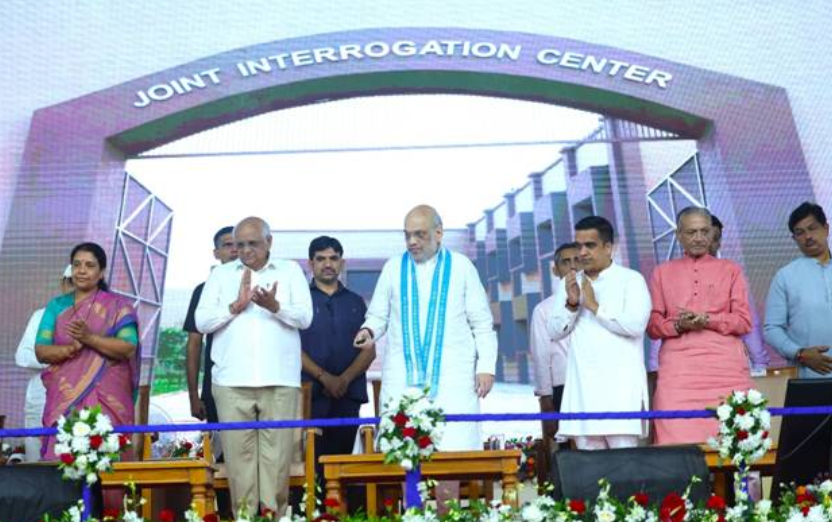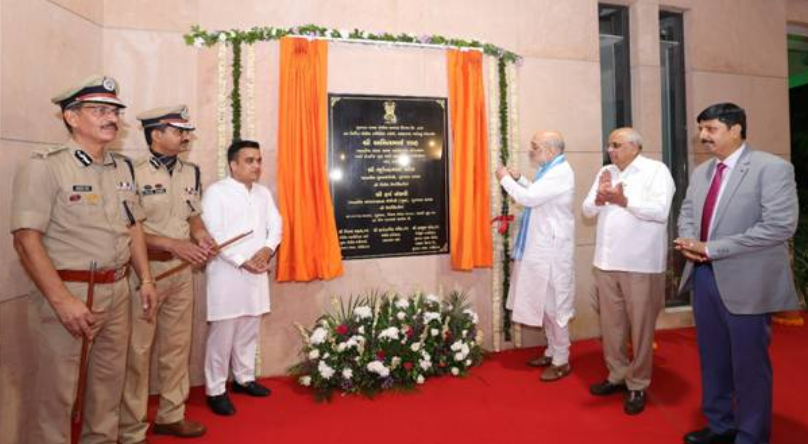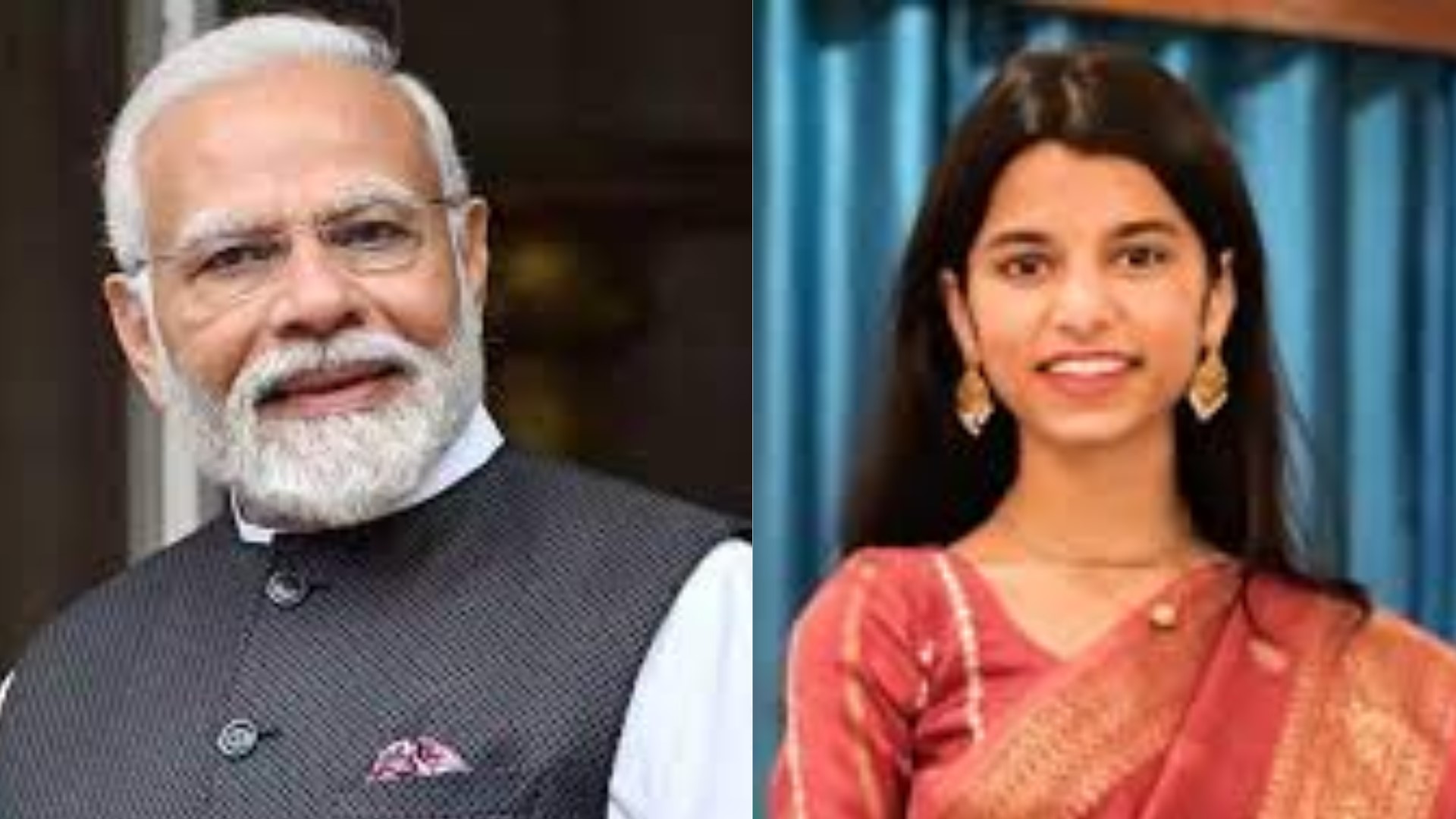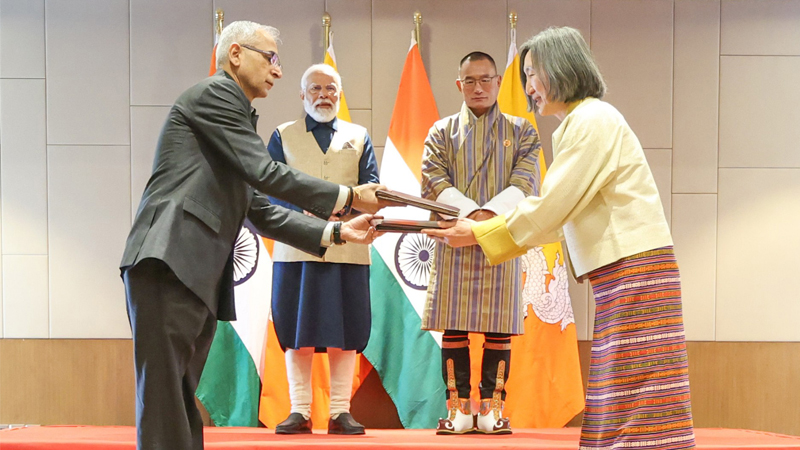Union Home Minister Amit Shah inaugurated the new Police Commissioner’s Office in Ahmedabad, Gujarat, today, with the event attended by Chief Minister Bhupendra Patel and other dignitaries.
In his address, Shah highlighted that the newly constructed building would not only enhance existing facilities but also introduce a new operational framework for the Ahmedabad police. The seven-story office, built using modern technology at a cost of approximately ₹140 crores and covering about 18,000 square meters, features amenities for personnel such as a gym, citizen parking, CCTV cameras, fire safety equipment, and centralized air conditioning. It will also house a police museum that chronicles security measures implemented in Ahmedabad over time.
A memorial has been established at the site to honor police personnel who sacrificed their lives in service to the community. Additionally, the office includes a public convenience center and a control room designed to enhance security throughout Ahmedabad.

Shah also announced the inauguration of the ‘Joint Interrogation Center’ and the ‘Tera Tujhko Arpan portal, as well as the launch of the Cyber Saathi book. These initiatives are aimed at raising awareness about cybercrime and assisting victims in recovering lost funds. The Joint Interrogation Center will facilitate scientific investigations by central agencies and local police during emergencies such as riots or terrorist attacks.
Discussing the evolution of India’s internal security, Shah noted significant changes over the past decade. He pointed out that regions like Kashmir, the Northeast, and Naxal-affected areas, which were previously hotspots for violence, have seen a 70% reduction in such incidents. This decline is attributed to the systematic and permanent measures implemented under Prime Minister Narendra Modi’s leadership, which have also led to a 72% decrease in mortality rates in these areas.
Shah emphasized that Modi has introduced a proactive, predictive, and scientific approach to policing. He mentioned the comprehensive overhaul of colonial-era criminal laws, resulting in the creation of three new laws designed to utilize technology in crime prevention and prosecution. These laws aim to remain relevant for the next century, eliminating the need for frequent updates. Time limits have been established for various judicial processes to prevent delays.
With the implementation of these new laws, Shah indicated that the necessary infrastructure development has begun, aiming to transform India’s criminal justice system into one of the most modern globally within three years. He assured that the entire justice process, from filing an FIR to a Supreme Court ruling, will be completed within three years.
Shah also remarked on the economic progress under Modi’s leadership, which has seen India rise from the 11th to the 5th largest economy globally, with aspirations to become the third largest by 2027. He emphasized the importance of robust legal support for police officers to effectively combat national security threats, including cybercrime and economic offenses.
The Gujarat Police has been recognized for its technological advancements, including initiatives like ‘E-GujCop,’ ‘body-worn cameras,’ and the ‘Vishwas Project.’ Shah commended their strong anti-narcotics campaign, which serves as a national model for effective law enforcement.
Shah concluded by noting that Modi envisions a ‘Viksit Bharat’ by 2047. He highlighted Gujarat’s transformation from a state once plagued by frequent curfews in the 1980s and 1990s to a region now characterized by safety and progress.




